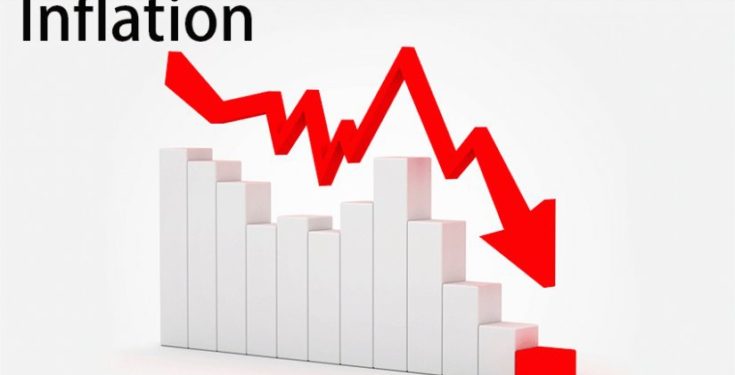The May 2025 inflation rate drops to 18.4 percent, down from 21.2 percent in April, according to data released by the Ghana Statistical Service (GSS) on Wednesday.
This marks the lowest inflation level since February 2022 and the fifth consecutive monthly drop in the year-on-year rate, pointing to renewed stability in prices across the country.
Monthly inflation drops to 0.7%; core inflation eases to 18.5%
Government Statistician Dr. Alhassan Iddrisu announced that monthly inflation in May stood at 0.7 percent, slightly lower than the 0.8 percent recorded in April.
Core inflation, which excludes volatile items such as food and energy, also moderated to 18.5%—an encouraging sign of easing inflationary pressures across essential categories.
Food and non-food prices for May inflation drops
Non-food inflation drops sharply to 14.4%; goods still cost than services
Food inflation declined to 22.8%, while non-food inflation dropped more significantly to 14.4%.
Goods inflation remained higher at 20%, compared to 14.3% for services.
Dr. Iddrisu noted that goods contributed 79% to overall inflation, with non-durable goods alone accounting for 10.1 percentage points of the 18.4% headline rate.
Domestic production helping ease price burden
Inflation for locally produced goods dropped by 3.5 percentage points, outpacing a 1.3-point fall in imported inflation.
This highlights the growing role of domestic supply in stabilising prices and reducing the economy’s exposure to global volatility. Key contributors to May’s inflation included staple food items such as yams, smoked herring, fish, vegetable oil, and ginger.
Regional disparities persist despite national gains
Upper West tops inflation chart at 38.1%; Ahafo records lowest at 14.5%
The Upper West Region recorded the highest regional inflation at 38.1 percent, driven largely by price increases in food, education, and utilities.
In contrast, the Ahafo Region posted the lowest inflation rate at 14.5%.
Fifteen out of the sixteen regions experienced year-on-year declines, underlining a broad-based disinflation trend across the country.
Stronger Cedi, tight monetary policy behind gains
Fiscal consolidation, positive sentiment reinforce inflation drop
According to Dr. Iddrisu, the sustained disinflation trend has been supported by a strengthened cedi, tighter monetary policy by the Bank of Ghana, and fiscal consolidation efforts by the government. Improved market confidence has also contributed to the positive economic trajectory.
He expressed cautious optimism that these gains could continue in the coming months.
Tips for households to manage spending
Bulk buying, seasonal foods, and NHIS use are recommended
Given that food inflation contributes nearly two-thirds of the total inflation basket, Dr. Iddrisu advised households to adopt strategies such as bulk purchasing, shared food buying, and focusing on seasonal, local produce.
He also recommended limiting discretionary spending on restaurants and recreation and emphasised the importance of preventive healthcare and using NHIS benefits to avoid costly out-of-pocket medical expenses.
Source locally and stay transparent
Disinflation offers opportunity to reset pricing strategies
Dr. Iddrisu encouraged businesses to rely more on locally sourced inputs to reduce exposure to global price fluctuations.
He warned against sharp price hikes during the disinflation period and urged firms to maintain transparent pricing to retain customer trust.
Businesses were also advised to tailor strategies to regional inflation trends, especially in the more volatile northern regions.
Policy recommendations for govt
Support local production, stabilise food prices, and protect the vulnerable
The Government Statistician called on the government to maintain macroeconomic policies that ensure cedi stability and sustain disinflation.
He recommended targeted investment in food logistics, irrigation, and post-harvest infrastructure.
In high-inflation regions, particularly the Upper West, he urged expanded social protection programmes and improved access to education and utilities.
Strengthening SMEs and agribusinesses and aligning fiscal and monetary policies were also highlighted as priorities.
Cautious optimism for continued relief
But vigilance is required to protect gains
While the recent inflation figures are encouraging, Dr. Iddrisu stressed the importance of remaining vigilant.
Sustained macroeconomic coordination, robust local production, and continued support for the most affected regions will be crucial in preventing a reversal of these hard-won gains.
For now, however, both households and businesses can look forward to a slightly more stable economic environment.













